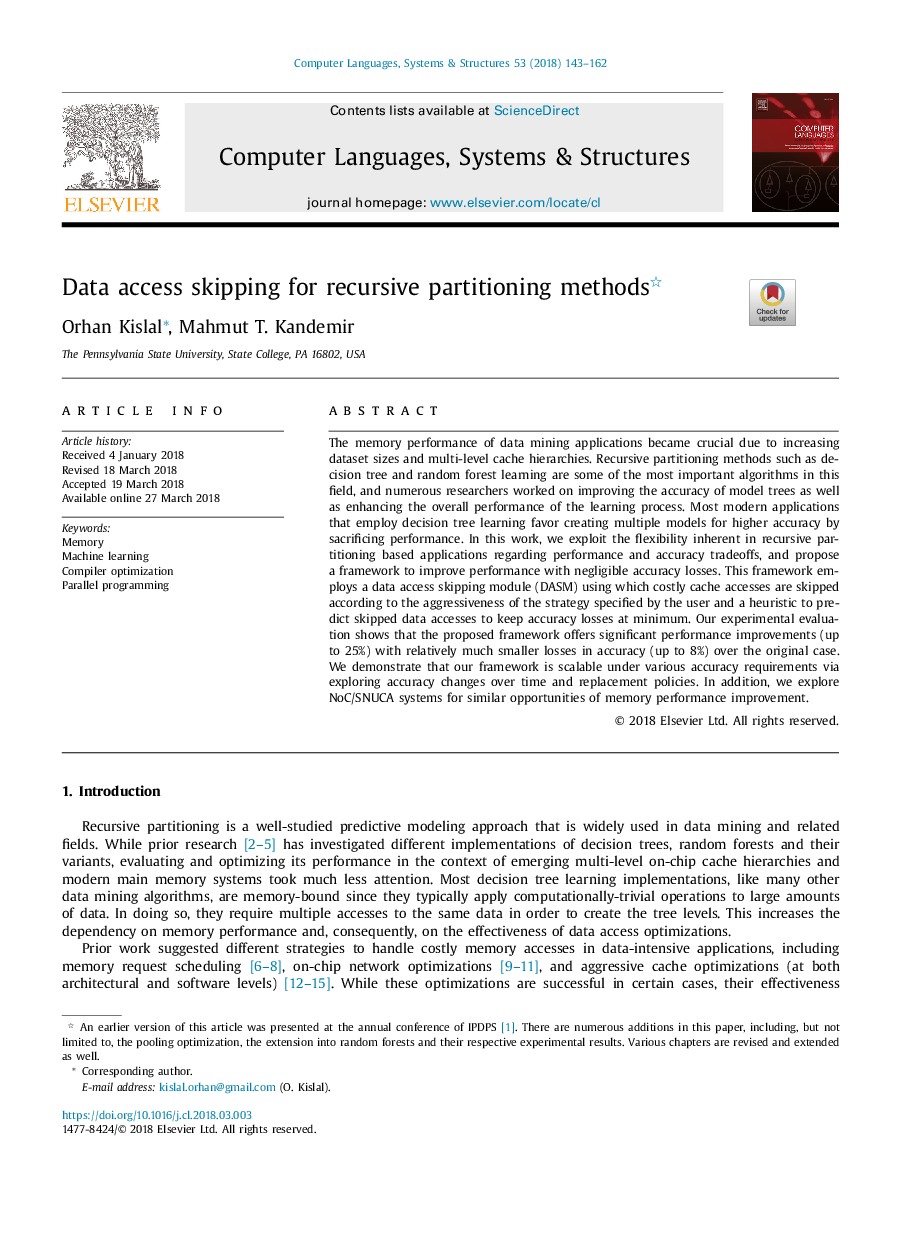ترجمه فارسی عنوان مقاله
دسترسی به دسترسی به داده ها برای روش های پراکنده مجدد
عنوان انگلیسی
Data access skipping for recursive partitioning methods
| کد مقاله | سال انتشار | تعداد صفحات مقاله انگلیسی |
|---|---|---|
| 156826 | 2018 | 20 صفحه PDF |
منبع

Publisher : Elsevier - Science Direct (الزویر - ساینس دایرکت)
Journal : Computer Languages, Systems & Structures, Volume 53, September 2018, Pages 143-162
ترجمه کلمات کلیدی
حافظه، فراگیری ماشین، بهینه سازی کامپایلر، برنامه ریزی موازی،
کلمات کلیدی انگلیسی
Memory; Machine learning; Compiler optimization; Parallel programming;

